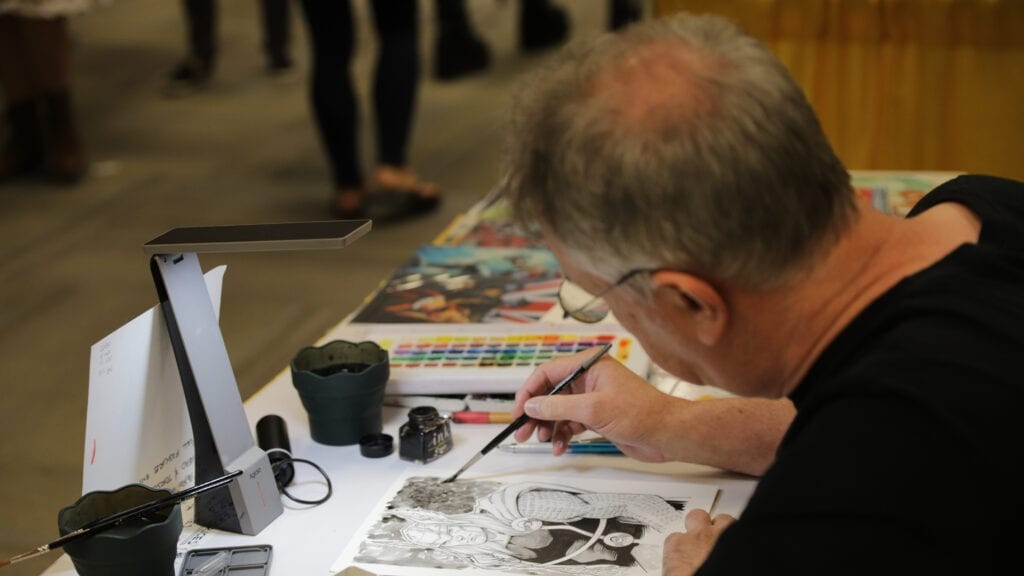
Ever been to Dragon Con? I'll be honest, I haven't myself. But from what I've heard, it's one of the most glorious celebrations of nerd culture on the planet. Every Labor Day weekend, Atlanta transforms into a carnival of comic books, sci-fi, fantasy, and everything in between. So hopefully not the kind of place where you need to be clued up on how to spot AI art.
We're talking 80,000-plus fans taking over the downtown hotels, dressed as everything from Snow White to Stormtroopers, queuing for panels and hunting for that perfect bit of fan art.
The best place for that last bit is Artist Alley, which houses hundreds of booths where artists, illustrators, and other creatives sell their wares. It might not look like anything special at first glance. But this is a place where careers are launched, where fans discover new talent, and where artists get to connect with those who love their work.
The fightback starts here
This year, it was the centre for something else too. A fightback against the AI art plague that's been eating away at creative communities throughout the 2020s.
In case you missed it (because you'd don't spent all your time on social media and actually have a life), here's what happened. A vendor got the boot in dramatic fashion, with police escort and everything, for selling AI-generated art whilst pretending it was their original handiwork.
The other artists cheered as the fraudster was marched out. And when I read about it, I cheered a little inside too. Because Dragon Con didn't just make a policy; they actually enforced it. They investigated, found the vendor wanting, and showed them the door. Just as it should be.
But this isn't just about one chancer getting their comeuppance. It's about the creative industry finally saying "enough" to the AI art explosion that's been eating away at our incomes.
Daily design news, reviews, how-tos and more, as picked by the editors.
A post shared by Shawn Crystal 🤘🏼💀🤘🏼 (@inkpulp)
A photo posted by on
For too long, we've watched billionaires tech bros talk about "disrupting" the creative industries, whilst training their machine-learning software on millions of artists' works without permission. They've sold us this notion that AI art is "democratising creativity" when what they really mean is "replacing human creativity with cheap, soulless imitations".
And as the Dragon Con incident highlights, every AI-generated piece sold as "original art" isn't just intellectual theft; it's taking money out of artists' pockets. We're talking about real people trying to make rent, feed families, and build careers doing something they love and are actually good at.
In this light, those cheers weren't just schadenfreude: they were relief. Relief that someone is finally taking artists' concerns seriously. And it's spreading. Galaxy Con, for instance, immediately announced their own ban on AI artwork after seeing how Dragon Con handled things.
Of course, this isn't going to stop AI art from being made, or sold online. But it's gently encouraging that at least in artists' own spaces, such as comic art conventions, the tide is starting to turn.

Tom May is an award-winning journalist specialising in art, design, photography and technology. His latest book, The 50 Greatest Designers (Arcturus Publishing), was published this June. He's also author of Great TED Talks: Creativity (Pavilion Books). Tom was previously editor of Professional Photography magazine, associate editor at Creative Bloq, and deputy editor at net magazine.
You must confirm your public display name before commenting
Please logout and then login again, you will then be prompted to enter your display name.
